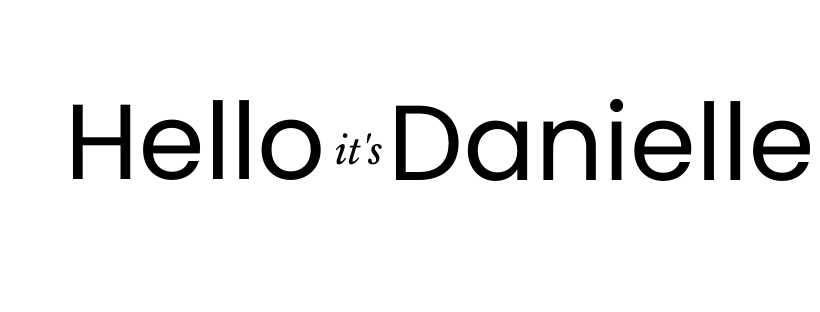You may be familiar with the ‘if you hear about something new three times in a short period of time, pay attention to it’ rule of thumb. I was first introduced to this rule in 2008 by lululemon founder, Chip Wilson at a speaking event aimed at Vancouver entrepreneurs and have followed it pretty religiously, with much success, since.
So when the previously unfamiliar to me term, Zeigarnik Effect, kept popping into my life in the late summer of 2019, I sat up and took notice. Well, let’s be honest, I sat up and began googling my fingers off and reading late into the night down the rabbit hole of the internet and social media.
And I have become fascinated (and slightly obsessed) with the concept.
In this post I want to share with you what the concept is - maybe it keeps popping up in your life too - and talk about some applications of the effect in my two favourite areas to explore and talk about - personal best and productivity & marketing communications and branding.
What is the Zeigarnik Effect?
The Zeigarnik effect is a psychological phenomenon that was first studied by a Russian, by some accounts and Lithuanian by others, psychologist named Bluma Zeigarnik in the early 1900s and has since been replicated by various scholars in a number of different settings. It describes the phenomena whereby people are able to more easily remember tasks that have not yet been completed versus those tasks that have already been completed.
So what’s got me fascinated and obsessed about this as I read and learn more about it?
- In terms of Personal Best and Productivity
I’m a goal writer and list maker and a calenderer of all things and an avid reader of all things related to productivity and personal best. So I’ve read numerous times and have practiced to great success, that goals written as if they have already been achieved are far more effective than writing down things that you hope will happen sometime in the future. But why I’ve often wondered. Is it just one of those things like ‘take the first step and the staircase will appear? As in, I have no idea how this works but it seems to work so I’m going to keep doing it anyway? Or is there an actual reason that this seems to keep working? The Zeigarnick Effect seems to be the answer to the latter question.
According to the Zeigarnick Effect, our brains will fixate on a task that has not yet been completed. So if we were to write a goal like “Run a half marathon in under 2 hours” our brains would fixate on it until it was complete. (And you know all about the whole host of books and studies about the power of holding a thought in our brain - born from the seminal book on the subject - Think and Grown Rich).
When we write our goals as not-yet-finished-tasks we are subconsciously harnessing the power of thought to activate the completion of these goals.
2. In terms of Marketing Communications and Branding
In addition to being a personal productivity nerd, I’m also a marketer and a branding veteran. What this means is that I work with businesses to achieve their business goals through uncovering ways to create meaningful and emotion-based relationships with their current and future customers. My a-ha moment came when I began to wonder if the Zeigarnick Effect was why brand essence statements, taglines and company vision statements work so well. Like the personal goal statements discussed above, these statements are often aspirational and articulate the desired future vision of the company and give the customers a reason to bring the company into their life.
Using this logic, can Disney’s tagline ‘Visit the happiest place on earth’ be credited for a good chunk of its brand’s success? Is this thought circling around in consumers’ minds as an unfinished task until it is complete? Subconsciously keeping Disney top of mind? I’m not sure. But learning about the Zeigarnick Effect has given me more reasons to believe yes rather than no.
So, my big takeaway from this and what I’m doing next in my life and work?
Activating the power of my subconscious mind to achieve results that I want in my life and business by expressing them as not-yet-completed tasks. (and trying to impress people at cocktail parties by dropping the term Zeigarnick Effect - but that goes without saying).
